Scientific Board
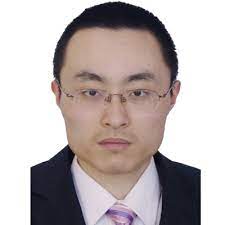
Biography
Prof. Yudong Zhang works at University of Leicester. His research interests include deep learning and medical image analysis. He is the Fellow of IET, Fellow of EAI, and Fellow of BCS. He is the Senior Member of IEEE and ACM. He is the Distinguished Speaker of ACM. He was 2019-2023 recipient of Clarivate Highly Cited Researcher. He has (co)authored over 400 peer-reviewed articles. There are more than 60 ESI Highly Cited Papers and 6 ESI Hot Papers in his (co)authored publications. His citation reached 29531 in Google Scholar (h-index 97). He is the editor of Neural Networks, IEEE TITS, IEEE TCSVT, IEEE JBHI, etc. He has conducted many successful industrial projects and academic grants from NIH, Royal Society, British Council, GCRF, EPSRC, MRC, BBSRC, Hope, and NSFC. He has served as (Co-)Chair for more than 60 international conferences (including more than 20 IEEE or ACM conferences). More than 70 news presses have reported his research outputs, such as Reuters, BBC, Telegraph, Mirror, Physics World, UK Today News, etc.
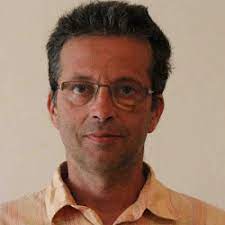
Biography
Frederic ALEXANDRE is an Inria research director, head of the Mnemosyne team on the Neurocampus of Bordeaux, France. His research interests concern the emergence of intelligent behavior by distributed computing with real or artificial neural networks. They are investigated in the domains of artificial intelligence and cognitive modeling, in tight loop with neuroscience and the medical domain. Concerning artificial intelligence and computational neuroscience, he is modeling interactions between the prefrontal cortex and the hippocampus, for cognitive control, with applications in LLM and reasoning. He is also interested in adaptive behavior for autonomous robotics, through embodied cognition and enaction. He aims at building a global model of the cognitive architecture to study how a variety of functions ranging from perceptive analysis and sensorimotor coordination to executive functions and consciousness are built by interaction with the inner (emotional) and the outer (physical) world. His team is located in a neuroscience lab in the Bordeaux Neurocampus and have other national and international collaborations to feed the loop of interactions, building models from data and knowledge in these domains and assessing and exploiting them for the study of neuronal mechanisms and structures, animal and human behavior and neurodegenerative diseases.
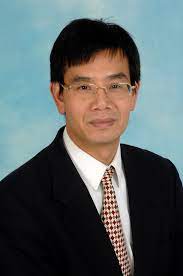
Biography
Shuang-Hua YANG received the B.S. degree in instrument and automation and the M.S. degree in process control from the China University of Petroleum (Huadong), Beijing, China, in 1983 and 1986, respectively, and the Ph.D. degree in intelligent systems from Zhejiang University, Hangzhou, China, in 1991. He was awarded DSc from Loughborough University in 2014 to recognize his academic contribution to wireless monitoring research. He is currently the Head of Department of Computer Science at the University of Reading, the UK and the Director of Shenzhen Key Laboratory of Safety and Security for Next Generation of Industrial Internet, Southern University of Science and Technology (SUSTech), Shenzhen, China. His current research interests include cyber-physical system safety and security, Internet of Things. He is a Fellow of IET and a Fellow of InstMC, U.K. He is an Associate Editor of the IET Journal Cyber-Physical Systems Theory and applications.

Biography
Amir HAJJAM EL HASSANI received his PhD in Computer Science from the Université de Haute Alsace (UHA) in 1990. He is a Professor HDR at the Université de Technologie de Belfort-Montbéliard (UTBM) and Head of Software Engineering. He is the Deputy Director of the Nanomedicine Lab, Imagery & Therapeutics at the Université de Franche-Comté (UFC) and Research Team Leader of Health Systems Organization. His research areas include data mining and machine learning for decision support in the field of e-Health. He is an Editorial Board Member of four international journals and the author/co-author of 3 books and numerous international publications in refereed journals and conferences. He was the Co-Chair of the first international conference eTelemed’09 and has been its advisory Chair since 2010. He is a member of the Science Steering Committee of the annual conferences IADIS e-Health, eHealth, e-Medisys, etc. He has organized many conferences and chaired several technical sessions. He also acts as an expert for ANRT France, ARI Alsace, and CNRST Morocco, Italian Ministry of Health, Algerian Ministry of Higher Education and Scientific Research.
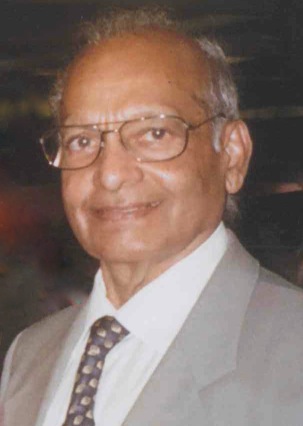
Biography
Prof. H. M. Srivastava (Hari Mohan Srivastava) has held the position of Professor Emeritus in the Department of Mathematics and Statistics at the University of Victoria in Canada since 2006, having joined the faculty there in 1969, first as an Associate Professor (1969 - 1974) and then as a Full Professor (1974 - 2006). He began his university-level teaching career right after having received his M.Sc. degree in 1959 at the age of 19 years from the University of Allahabad in India. He earned his Ph.D. degree in 1965 while he was a full-time member of the teaching faculty at the J. N. V. University of Jodhpur in India. He has held numerous visiting research and honorary chair positions at many universities and research institutes in different parts of the world. Having received several D.Sc. (honoris causa) degrees as well as honorary memberships and honorary fellowships of many scientific academies and learned societies around the world, he is also actively associated editorially with numerous international scientific research journals. His current research interests include several areas of Pure and Applied Mathematical Sciences such as (for example) Real and Complex Analysis, Fractional Calculus and Its Applications, Integral Equations and Transforms, Higher Transcendental Functions and Their Applications, q-Series and q-Polynomials, Analytic Number Theory, Analytic and Geometric Inequalities, Probability and Statistics, and Inventory Modelling and Optimization. He has published 27 books, monographs and edited volumes, 30 book (and encyclopedia) chapters, 45 papers in international conference proceedings, and more than 1,100 scientific research articles in peer-reviewed international journals, as well as Forewords and Prefaces to many books and journals, and so on. He is a Clarivate Analytics [Thomson-Reuters] (Web of Science) Highly Cited Researcher. For further details about his other professional achievements and scholarly accomplishments, as well as honors, awards and distinctions, including the lists of his most recent publications such as Journal Articles, Books, Monographs and Edited Volumes, Book Chapters, Encyclopedia Chapters, Papers in Conference Proceedings, Forewords to Books and Journals at http://www.math.uvic.ca/~harimsri/.

Biography
Pascal Lorenz has received his M.Sc. (1990) and Ph.D. (1994) from the University of Nancy, France. Between 1990 and 1995 he was a research engineer at WorldFIP Europe and at Alcatel-Alsthom. He is a professor at the University of Haute-Alsace, France, since 1995. His research interests include QoS, wireless networks and high-speed networks. He is the author/co-author of 3 books, 3 patents and 200 international publications in refereed journals and conferences. He was Technical Editor of the IEEE Communications Magazine Editorial Board (2000-2006), IEEE Networks Magazine since 2015, IEEE Transactions on Vehicular Technology since 2017, Chair of IEEE ComSoc France (2014-2020), Financial chair of IEEE France (2017-2022), Chair of Vertical Issues in Communication Systems Technical Committee Cluster (2008-2009), Chair of the Communications Systems Integration and Modeling Technical Committee (2003-2009), Chair of the Communications Software Technical Committee (2008-2010) and Chair of the Technical Committee on Information Infrastructure and Networking (2016-2017), Chair of IEEE/ComSoc Satellite and Space Communications Technical (2022-2023), IEEE R8 Finance Committee (2022-2023), IEEE R8 Conference Coordination Committee (2023). He has served as Co-Program Chair of IEEE WCNC'2012 and ICC'2004, Executive Vice-Chair of ICC'2017, TPC Vice Chair of Globecom'2018, Panel sessions co-chair for Globecom'16, tutorial chair of VTC'2013 Spring and WCNC'2010, track chair of PIMRC'2012 and WCNC'2014, symposium Co-Chair at Globecom 2007-2011, Globecom'2019, ICC 2008-2010, ICC'2014 and '2016. He has served as Co-Guest Editor for special issues of IEEE Communications Magazine, Networks Magazine, Wireless Communications Magazine, Telecommunications Systems and LNCS. He is associate Editor for International Journal of Communication Systems (IJCS-Wiley), Journal on Security and Communication Networks (SCN-Wiley) and International Journal of Business Data Communications and Networking, Journal of Network and Computer Applications (JNCA-Elsevier). He is senior member of the IEEE, IARIA fellow and member of many international program committees. He has organized many conferences, chaired several technical sessions and gave tutorials at major international conferences. He was IEEE ComSoc Distinguished Lecturer Tour during 2013-2014. Â
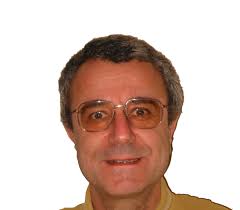
Biography
Prof. Patrick Siarry was born on May 28, 1952, in Pertuis. His research area is relatively (since 1982) new “metaheuristicâ€optimization such as simulated annealing, which are indicated for the so-called problems of “hard optimization†because of their ability to avoid in principle, trapping in sub-optimal solutions. This topic is multidisciplinary in nature, both by the source of the methods studied (physics, biology, ethology). Much of his work is explicitly one or the other keywords – in particular, modeling, identification, learning rule bases (artificial intelligence), control, nondestructive testing and maintaining the biological and medical engineering. 1970 Bachelor C, with honors, 1972 Graduate Mathematics and Special B (physics),1972 Admission on contest at INPG, Ecole Nationale Superieure d\\Electrical Engineers of Grenoble (IEG), Section Engineering Physics 1973 Certificates C1 and C2 of physics research (Univ. des Sciences de Grenoble) 1975 Engineer, Institut National Polytechnique de Grenoble (INPG), with honors 1975 “First Certificate in Englishâ€, University of Cambridge 1975 Listing on securities in the second year of SUPELEC (Ecole Superieure d\\Electricite), Paris 1977 Engineer, Ecole Supérieure d\\Electricité (SUPELEC), Section Automatics 1986 Ph.D. from the University of Paris 6, specialty electronics, high honors Topic: Simulated annealing method: application to the design of electronic circuits 1994 Habilitation to supervise research from the University of Paris 11, Orsay,1995 Professor, Section 61 of C.N.U. 1999 Professor at University Paris-Est Créteil (UPEC),2010 Professor Grade: Exceptional class (class C.N.U.).

Biography
CHANG GYOON LIM received the Ph.D. degree from the Department of Computer Engineering, Wayne State University, USA, in 1997. Since September 1997, he has been working for major in computer engineering with Chonnam National University, Yeosu, South Korea, as a professor. He was the Director of Home Robot Center, Gwangju Techno Park. He also leads various research projects of his interest areas Current areas of interest include machine learning, energy optimization, Io T, big data, virtual power plants, digital twins, and block chain. He is a member of Korean Society for Internet Information. Simultaneously, he acts as the committee member of several public and private regional institutions. He currently serves as Chairman of the Board of Coding Insight and Chairman of WIT.

Biography
Dr Cheng Siong Chin is a Chair Professor in Intelligent Systems Modelling and Simulation at Newcastle University and an Adjunct Professor at Chongqing University, School of Automotive Engineering. He received his Ph.D. in Applied Control Engineering at Research Robotics Centre at Nanyang Technological University (NTU) in 2008 and his M.Sc. (Distinction) in Advanced Control and Systems Engineering from The University of Manchester in 2001. He also received a B.Eng. (Hons) degree in Mechanical and Production Engineering from Nanyang Technological University (NTU) in 2000. Before moving into academia, he worked in the consumer electronics industry for a few years. He obtained 6 Economic Development Board (EDB)-Industrial Postgraduate Programme(IPP) and 2 Singapore Maritime Institute (SMI) grants from the Singapore government in intelligent systems design, simulation, and predictive analytics as a PI and Co-PI. He has obtained more than 170 publications, 5 authored books,2 Singapore Patent Applications, and 3 US Patents. He also received DCASE2019Judges' Award in IEEE AASP Challenge on DCASE2019. He is an Associate Editor for IEEE Access Journal, Applied Artificial Intelligence, IEEE Transportation Electrification Community (TEC) eNews letter, and editorial board member of Electronics. He has served as General Chair, Keynote Speaker, Session Chair, and Technical Committee at numerous international conferences.
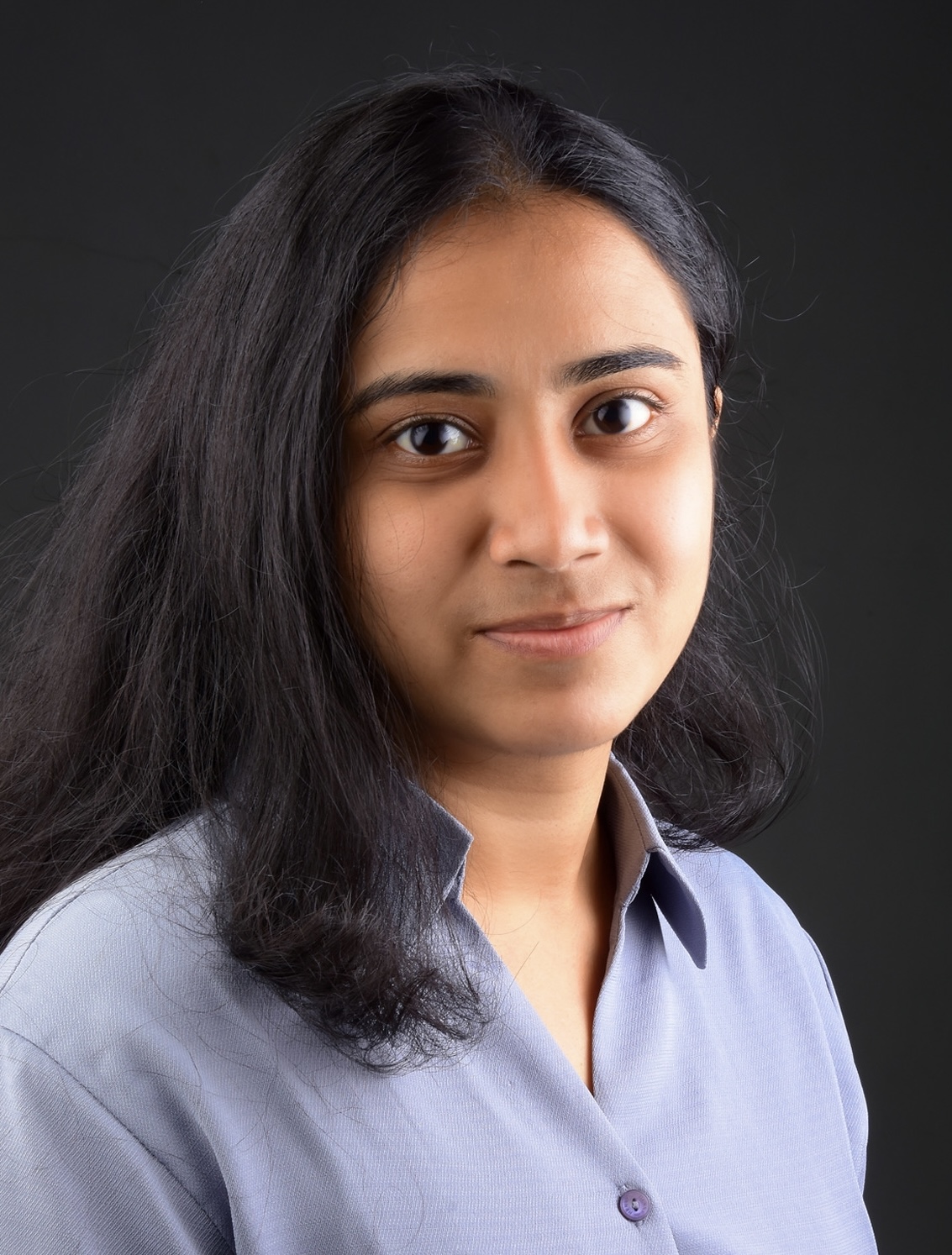
Biography
Ashly Joseph is an accomplished technology professional and innovator with 6 years of experience driving large-scale systems and developing cutting-edge solutions in the field of computer engineering. She currently works for Cisco Systems, USA, specialized in software-defined networking, cloud, and security solutions for businesses. She is the current Reviewer of the IEEE journals and Artificial Intelligence/Machine Learning Committee at ASME.
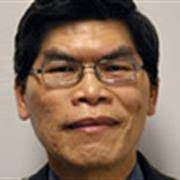
Biography
Joseph Tan, PhD, formerly Wayne C Fox Chair in eBusiness Innovation, is Professor of eBusiness/eHealth Innovation & Informatics, DeGroote School of Business, McMaster University, Hamilton, Canada. He is the founding and ongoing Editor-in-Chief, International Journal of Healthcare Information Systems & Informatics with a professional background that spans a broad spectrum of multi-disciplines, including general management, information systems, civil & environmental engineering, health technology management, graphics & human-computer interfacing, systems & industrial engineering, and cognitive, decision & design sciences. Joseph Tan’s last 30-plus year academic and administrative experiences include engagements in academia; private and non-profit sector organizations as well as consulting and executive program development activities. His management philosophy is to motivate others to lead and to work collaboratively towards achieving excellence leading to transformative change in win-win situations. Professor Tan also mentors large conference and research networks globally; he regularly aids junior (and senior) faculty members, staff and students from all walks of life. Dr. Tan has also been named among the Top 10 most influential professors of informatics in North America with an overall career focus to reshape the landscape of global eHealth/eBusiness digitalization. His leadership style is to motivate and inspire others to become self-made leaders, continually to achieve higher quality, effective, productive, and impactful contributions in term of realizing the shared vision and negotiated strategic goals. Professor Tan has published widely, including top journals such as Nature and in numerous local, national and international conferences. In addition to a 4th edition of his best-selling Adaptive HMIS text, Professor Tan has just completed another Digital eHealth book with a section to bring together cases that he and other collaborators have co-authored over the years in his ongoing mentoring and sharing of digital transformative concepts and e-Business strategies as well as entrepreneurship concepts. To date, Dr. Tan has achieved recognized scholarship in teaching & learning with students’ nominations for teaching excellence and has appeared frequently as invited keynotes for a number of local, regional, national as well as key international conferences across North America, Asia, Middle Eastern countries (Iran), Africa, and more. Dr. Tan also networks widely with key decision executives and policymakers apart from academic scholars and practitioners at local, provincial/state, national and international levels, including private, public and non-governmental organizations and universities. As a well-established and globally influential educator, fund raiser and negotiator, Dr. Tan has continued to play an active leadership role in curriculum and program accreditation, peer-reviewed journal publications, encyclopedia works and book reviews, online education & programming, planning and organization of symposiums, international workshops and conferences, the development of book series, book chapters, books and special issue journals, federal grant proposals and large-scale international interdisciplinary grant-funded programs.

Biography
Xiaochun Cheng. (IEEE SM’04) received the BEng degree in Computer Engineering in 1992, PhD in Computer Science in 1996. He has been working in UK University since 1997. One project was funded with 16 million Euro. He is a member of the IEEE SMC Technical Committee on Computational Intelligence, a member of IEEE Communications Society Communications and Information Security Technical Committee, a member of BCS AI Specialist Group. He contributed for five times best conference paper awards so far. 5 his papers were in the top 1% of the academic field by Data from Essential Science Indicators. He won 3 times national competitions. He won national award. He contributed for two solutions, which achieved national best results and were adopted nationally.
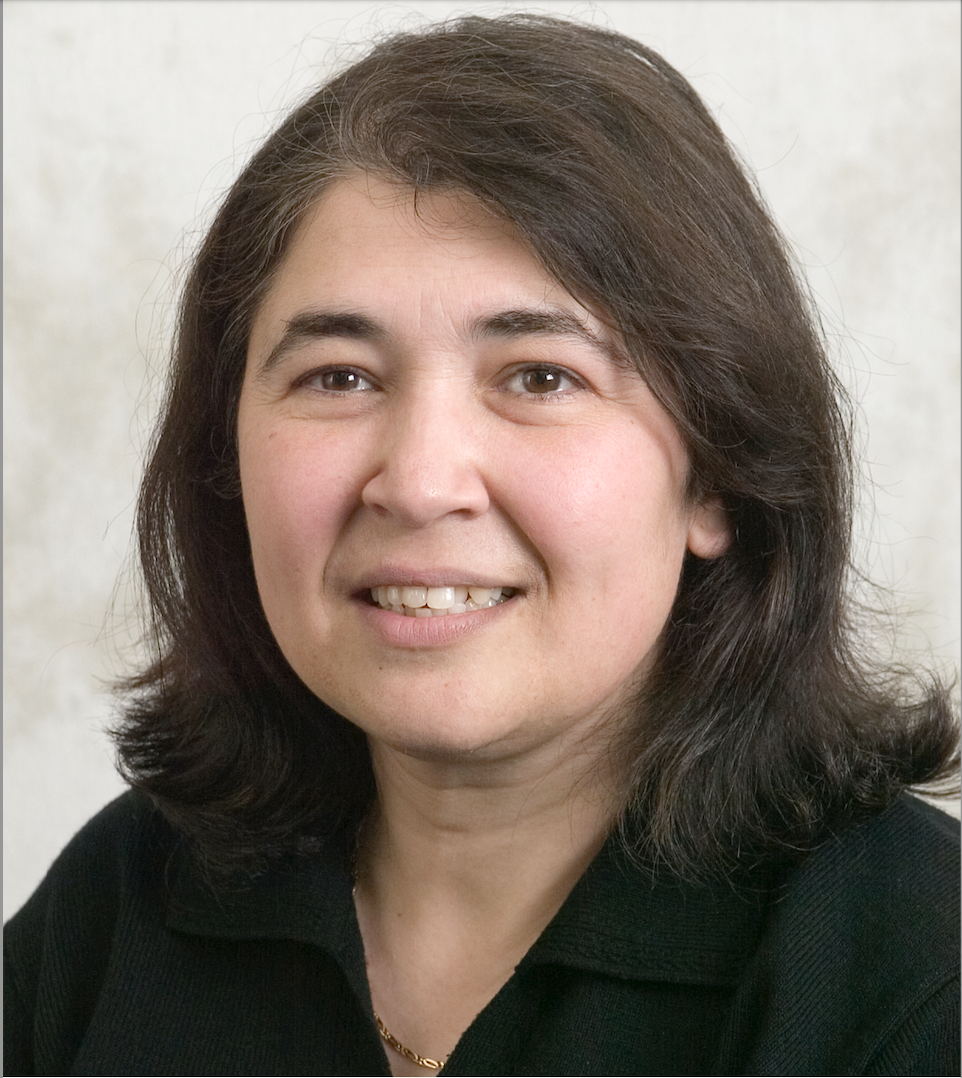
Biography
Nalan Gulpinar is a Professor of Operations Research and Business Analytics at Durham Business School, Durham University. She worked as an associate professor at Warwick Business School, The University of Warwick. Before joining Warwick, she was first a research fellow, then a research lecturer in the Department of Computing at Imperial College London. She received BSc and MSc degrees in Mathematics and a PhD in Operations Research. Her research projects have been of multi-disciplinary nature owing to the different broad contexts in which analytics are applied to develop robust and optimal decisions. The main focus has been decision-making under uncertainty with applications to various areas in healthcare, finance, and supply chain management.
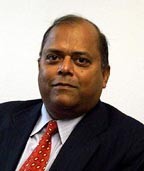
Biography
Professor Ramesh K. Agarwal is the William Palm Professor of Engineering in the department of Mechanical Engineering and Materials Science at Washington University in St. Louis. From 1994 to 2001, he was the Sam Bloomfield Distinguished Professor and Executive Director of the National Institute for Aviation Research at Wichita State University in Kansas. From 1978 to 1994, he was the Program Director and McDonnell Douglas Fellow at McDonnell Douglas Research Laboratories in St. Louis. Dr. Agarwal received PhD in Aeronautical Sciences from Stanford University in 1975, M.S. in Aeronautical Engineering from the University of Minnesota in 1969 and B.S. in Mechanical Engineering from Indian Institute of Technology, Kharagpur, India in 1968. Over a period of 45+ years, Professor Agarwal has worked in Computational Fluid Dynamics (CFD), Computational Acoustics and Electromagnetics, Computational Materials Science and Manufacturing, Multidisciplinary Design & Optimization, and their applications to problems in mechanical and aerospace engineering, and in energy and environment. His recent work involves Digital Twins, Machine Learning and AI applications to aircraft design and optimization using Bayesian optimization with convolution neural networks for hydrogen fuel cell powered aircraft and hydrogen powered gas turbine engine. He is also applying machine learning to improve turbulence modeling and the performance of mixed flow pumps, chemical looping combustion reactors and techniques for geological sequestration of carbon. He has also applied single and multi-objective genetic algorithms combining with neural nets for optimization of wind-turbine airfoils/blades. He is the author and coauthor of over 600 publications. He has given many plenary, keynote and invited lectures at various national and international conferences worldwide in over sixty countries. He is a Fellow of 26 professional societies including American Institute of Aeronautics and Astronautics (AIAA), American Society of Mechanical Engineers (ASME), Institute of Electrical and Electronics Engineers (IEEE), Society of Automotive Engineers (SAE), American Association for Advancement of Science (AAAS), American Physical Society (APS), and U.K. Institute of Physics among others. He has received many prestigious honors and national/international awards from various professional societies and organizations for his research contributions including the AIAA Reeds Aeronautics Award, SAE Medal of Honor, ASME Honorary Membership and Honorary Fellowship from Royal Aeronautical Society
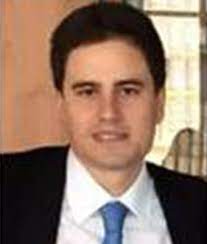
Biography
Marcello Iasiello joined in 2017 the Industrial Engineering Department of the Università Degli Studi di Napoli Federico II, Italy, as an Assistant Professor. At the same University he earned M. S. and Ph. D. degrees in Mechanical Engineering in 2012 and 2016, respectively. He was a visiting researcher at Universitat Politecnica de Valencia (10/2019 – 11/2019), and a visiting scholar at both University of California, Riverside (03/2014-09/2014) and University of Connecticut (05/2012-08/2012), respectively. His research activity focuses on heat and mass transfer in innovative porous materials, latent thermal energy storage systems, batteries thermal management, heat transfer optimization via AI techniques, and bioengineering applications. As of November 2023, based on Scopus database, he is currently coauthor of 81 scientific articles, namely 50 journal articles, 26 conference papers, 2 book chapters and 2 review articles. Among his honors, in 2017 he achieved the 2015-2016 best Ph.D. thesis prize from the Unione Italiana Termofluidodinamica (UIT) thanks to its thesis titled “Transport Phenomena in Porous Media: From Industrial Applications to Bioengineeringâ€. He has been listed in the World’s top 2% scientist’ list from Stanford University for 2022 and 2021. In 2021, he won the Graham de Vahl Davis Best Paper Award at the 8th International Symposium on Advances in Computational Heat Transfer (CHT-21). He was the local congress chair at the 9th International Conference on Heat Transfer and Fluid Flow (HTFF’22) conference in Prague, Czech Republic, in 2022. He is currently editor of Special Topics & Reviews in Porous Media, Computational Thermal Sciences: An International Journal, and Thermo.
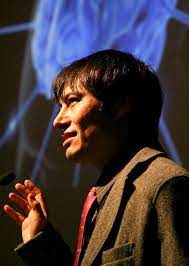
Biography
Adrian David Cheok AM is Full Professor at i-University Tokyo, Director of the Imagineering Institute, Malaysia, Visiting Professor at Raffles University, Malaysia, Visiting Professor at University of Novi Sad-Serbia, on Technical faculty “Mihailo Pupinâ€, Serbia, Faculty of Ducere Business School, and CEO of Nikola Tesla Technologies Corporation. He is Senior Member of the IEEE. In 2019, The Governor General of Australia, Representative of Her Majesty the Queen Elizabeth II, has awarded Australia’s highest honour the Order of Australia to Adrian David Cheok for his contribution to international education and research. He is Founder and Director of the Mixed Reality Lab, Singapore. He was formerly Professor of Pervasive Computing, University of London, Full Professor and Executive Dean at Keio University, Graduate School of Media Design and Associate Professor in the National University of Singapore. He has previously worked in real-time systems, soft computing, and embedded computing in Mitsubishi Electric Research Labs, Japan. He has been working on research covering mixed reality, human-computer interfaces, wearable computers and ubiquitous computing, fuzzy systems, embedded systems, power electronics. He has successfully obtained approximately $130 million dollars in funding for externally funded projects in the area of wearable computers and mixed reality from Daiwa Foundation, Khazanah National (Malaysian Government), Media Development Authority, Nike, National Oilwell Varco, Defence Science Technology Agency, Ministry of Defence, Ministry of Communications and Arts, National Arts Council, Singapore Science Center, and Hougang Primary School. The research output has included many high quality academic journal papers, research awards, keynote speeches, international exhibitions, numerous government demonstrations including to government President and Prime Ministers, broadcast television worldwide broadcasts on his research (such as CNN/ CNBC/ ABC/ Discovery/ National Geographic etc.), and hundreds of international press media articles. He has been a keynote and invited speaker at numerous international conferences and events. He was invited to exhibit for two years in the Ars Electronica Museum of the Future, launching in the Ars Electronica Festival 2003 and 2017. His works “Human Pacmanâ€, “Magic Landâ€, and “Metazoa Ludensâ€, were each selected as one of the world’s top inventions by Wired and invited to be exhibited in Wired NextFest 2005 and 2007. He was awarded the Hitachi Fellowship, the A-STAR Young Scientist of the Year Award, and the SCS Singapore Young Professional of the Year Award. He was invited to be the Singapore representative of the United Nations body IFIP SG 16 on Entertainment Computing and the founding Chairman of the Singapore Computer Society Special Interest Group on Entertainment Computing. He was awarded an Associate of the Arts award by the Minister for Information, Communications and the Arts, Singapore. He was awarded as Fellow in Education, World Technology Network. He was awarded a Microsoft Research Award for Gaming and Graphics. He received the C4C Children Competition Prize for best interaction media for children, the Integrated Art Competition Prize by the Singapore Land Transport Authority, Creativity in Action Award, and a First Prize Nokia Mindtrek Award. He received a First Prize in the Milan International InventiON competition. He received the Gold award for best Creative Showcase ACE, He is winner of Keio University Gijyuju-sho award, awarded for the best research of the year in Keio University, Japan’s oldest university. He received an SIP Distinguished Fellow Award which honours legendary leaders whose illustrious lives have positively influenced lives across generations and communities around the globe. He was awarded Young Global Leader by the World Economic Forum. This honour is bestowed each year by the World Economic Forum to recognize and acknowledge the top young leaders from around the world for the professional accomplishments, commitment to society and potential to contribute to shaping the future of the world. He was awarded “Honorary Expert†by Telefonica and El Bulli, the number one restaurant in the world. He is a Fellow of the Royal Society for the encouragement of Arts, Manufactures and Commerce (RSA), an organisation which is committed to finding innovative practical solutions to today’s social challenges. His research on smell interfaces was selected by NESTA as Top 10 Technologies of 2015. In 2016, he was awarded the Distinguished Alumni Awards by University of Adelaide, in recognition of his achievements and contribution in the field of Computing, Engineering and Multisensory communication. In 2017, he entered the elite list of The h-Index for Computer Science, a list that contains only the top 0.06\% of all computer scientists in the world. In 2018, he was awarded Albert Nelson Marquis Lifetime Achievement Award. Remote kissing gadget ‘Kissenger’ was selected to the Top 100 Science Spinoffs and has entered the top 2% out of 5,000 global science spin-offs according to the following criteria: uniqueness of the technology/product, high commercial potential and positive impact to the humanity’s well-being by Spinoff.com. He is/was Editor in Chief of the academic journals: Journal of Future Robot Life, Advances in Robotics and Automation, Transactions on Edutainment, ACM Computers in Entertainment, Lovotics: Academic Studies of Love and Friendship with Robots, and Multimodal Technologies and Interaction. He is/was Associate Editor of Advances in Human Computer Interaction, International Journal of Virtual Reality, Virtual Reality, and The Journal of Ambient Intelligence and Humanized Computing (AIHC). He is on the Editorial Board of International Journal of Arts and Technology (IJART), Journal of Recent Patents on Computer Science, The Open Electrical and Electronic Engineering Journal, International Journal of Entertainment Technology and Management (IJEntTM), The Journal of Virtual Reality and Broadcasting, and Interacting with Computers Adrian David Cheok, who was born and raised in Adelaide, Australia, graduated from the University of Adelaide with a Bachelor of Engineering (Electrical and Electronic) with First Class Honours in 1992 and an Engineering Ph.D in 1998.

Biography
Pavel Loskot joined the ZJU-UIUC Institute, Haining, China, in January 2021 as Associate Professor after 14 years being the Senior Lecturer at Swansea University in the UK. He obtained his PhD degree in Wireless Communications from the University of Alberta in Canada, and the MSc and BSc degrees in Radioelectronics and Biomedical Electronics, respectively, from the Czech Technical University of Prague in the Czech Republic. In the past 25 years, he was involved in numerous collaborative research and development projects, and also held a number of consultancy contracts with industry. Pavel Loskot is a Senior Member of the IEEE, a Fellow of the Higher Education Academy in the UK, and the Recognized Research Supervisor of the UK Council for Graduate Education. His current research interests focus on mathematical and probabilistic modeling, statistical signal processing and classical machine learning for multi-sensor data in biomedicine, computational molecular biology, and wireless communications.

Biography
Dr. Grigorios N. Beligiannis is currently working as Professor at University of Patras Greece. His research interest focuses on Computational Intelligence, Intelligent Information Systems and Design and Development of Hybrid Intelligent Algorithms for Solving Timetabling and Scheduling Problems.
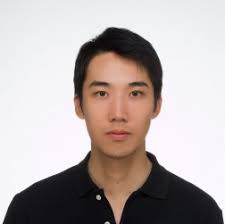
Biography
Yung-Yao Chen received his B.S. (2004) and M.S. (2006) degrees in Electrical and Control Engineering from the National Chiao Tung Universityfrom Hsinchu, Taiwan, and his Ph.D. (2013) degree in Electrical Engineering from Purdue University, USA. Before being a faculty, he has worked in HP Labs - Printing and Content Delivery Lab (HPL - PCDL) about one year. He is currently an Associate Professor in the Department of Electronic and Computer Engineering and the Co-Director of Taiwan Tech Smart Electric Vehicle Research Center, National Taiwan University of Science and Technology, Taipei, Taiwan.His current research interests include vision-based automation, automated/wisdom factory, self-driving car, and human-computer interaction. Dr. Chen was the recipient of the Best Paper Award of theInternational conference on Advanced Robotics and Intelligent Systems,the Rotary Foundational Scholarship, and the Ta-Yu Wu Memorial Award from Taiwan’s Ministry of Science and Technology (MOST). He is a member of Golden Key International Honor Society and Phi Tau Phi.

Biography
Federico Pallottino Has a Ph.D. in Food Biotechnology, since 2017 permanent Researcher and from 2021 Senior Researcher at the Research Centre for Engineering and Agro-Food Processing (CREA-IT), Monterotondo (Rome) of the Council for agricultural research and economics (CREA). He is the winner as co-author of the Award for Best Research Published by CREA Staff in 2011. In 2010 he was awarded the Young Researchers Award at the III National Conference of the Italian Society of Sensory Sciences in Naples. Reviewer appointed by ANVUR for the Evaluation of Research Quality (VQR) 2011-2014, CREA teacher for the technical-scientific areas relating to image analysis, colorimetry and morphometry. Reviewer of international projects for the Ministry of Foreign Affairs and International Cooperation as part of the scientific cooperation agreement between Italy and Israel (2015) and for the "Ministry of Education and Science" of the Republic of Kazakhstan. Editorial Board member of different IF Journals. Associate to A.I.I.A. (Italian Association of Agricultural Engineering) - VII technical section "Information and communication technologies"; association also to EurAgEng (European Society of Agricultural Engineers) and to the CIGR (International Commission of Agricultural and Biosystems Engineering). Member of the Post-harvest Working Group of the Italian Horticultural Society (SOI). Reviewer of several international journals IF and for the European commission of Horizon 2020 projects. His Skills and research fields regards applications of digital engineering technologies and numerical methodologies in biosystems, agri-food and agro-industrial (ICT, imaging, RFiD, spectrometry, proximal sensing, thermography, inferential or predictive multivariate modeling, electronics, and open-source software), also in relation to digital and precision agriculture applications. In addition, he works on sensors for pre- and post-harvesting products characterization, rapid and non-destructive techniques for the analysis and certification of aspects of product.

Biography
Yuan-Kai Wang received the B.S. degree of electrical engineering in 1990 and Ph.D. degree of computer science and information engineering in 1995, from National Central University. He was a postdoctoral fellow in the Institute of Information Science of Academia Sinica from 1995-1999. From 1999 he joined the department of electrical engineering, Fu Jen University as an associate professor, and from 2017 as a professor. He has been the Chair, Co-chair and Program Committee member of many international conferences, and reviewers of many journals and IEEE transactions. He served the Chinese Image Processing and Pattern Recognition Society for the board of directors and supervisors from 2004 to 2022. He served the Information Service Association of Chinese Colleges for the board of directors from 2005-2007. He was invited as a panel speaker for the International Conference of Pattern Recognition in 2014. He is currently an IEEE Senior Member. His research interests include computer vision, pattern recognition, neural networks, genetic algorithms, machine learning and artificial intelligence, with special focus on neuromorphic vision, medical image analysis, video surveillance, face recognition, biometrics, robotic vision, embedded computer vision and health care.
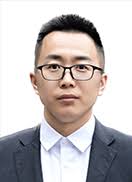
Biography
Professor Shunli Wang, Ph.D., Honorary President of the Smart Energy Storage Institute, focuses on new energy measurement and control research with the core of lithium battery state estimations and conducts theoretical exploration and industrial application of whole life cycle state measurement and control. He has published 173 articles in SCI-1 TOP journals, with 1832 citations, 21 h-index, 53 national invention patents, and other intellectual property rights, and has published 7 books in Elsevier and IET (2 Elsevier monographs, 2 IET monographs, 1 CRC Press monograph, and 2 books of Mechatronics, which included 6300 copies of "New Energy Technology and Power Management" and were reprinted four times). He has guided students to carry out 29 science and technology innovation projects, with 6 excellent completions, won 34 science and technology competitions, won 23 honorary titles such as Sichuan Overseas High-Level Study Abroad Talent, and presided over the second prize of Natural Science of the Chinese Society of Automation. He has been selected as the chairman of 3 international conferences, the editorial board member of 4 international journals, the organizer of 3 international new energy summits, the academician workstation team, the innovation team of civil-military integration, the support plan of the team of innovative talents in universities and enterprises, and the identification of the results reached the international advanced level, which was reported by People's Daily of China.
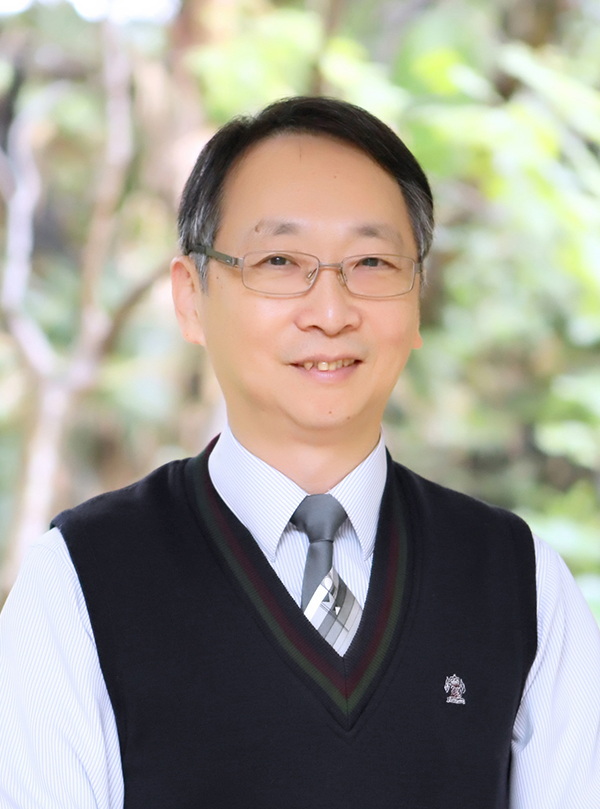
Biography
Wen-Jer Chang (Member, IEEE) received the B.S. degree from the National Taiwan Ocean University, Keelung, Taiwan, in 1986, with the major focus on marine engineering and minor focus on electronic engineering, the M.S. degree from the Institute of Computer Science and Electronic Engineering, National Central University, in 1990, and the Ph.D. degree from the Institute of Electrical Engineering, National Central University, in 1995. Since 1995, he has been with the National Taiwan Ocean University. He is currently the Director of the Matsu Administration Office and a Full Professor with the Department of Marine Engineering, National Taiwan Ocean University. He has authored more than 135 published journal articles and 130 refereed conference papers. His recent research interests include marine engineering, fuzzy control, robust control, and performance constrained control. He is a Life Member of CIEE, CACS, CSFAT, and SNAME. Since 2003, he has been listed in the Marquis Who’s Who in Science and Engineering. In 2003, he won the Outstanding Young Control Engineers Award granted by the Chinese Automation Control Society (CACS). In 2004, he won the Universal Award of Accomplishment granted by ABI of USA. In 2005 and 2013, he was selected as an Excellent Teacher of the National Taiwan Ocean University.

Biography
Valentina E. Balas is currently Full Professor in the Department of Automatics and Applied Software at the Faculty of Engineering, “Aurel Vlaicu†University of Arad, Romania. She holds a Ph.D. Cum Laude, in Applied Electronics and Telecommunications from Polytechnic University of Timisoara. Dr. Balas is author of more than 400 research papers in refereed journals and International Conferences. Her research interests are in Intelligent Systems, Fuzzy Control, Soft Computing, Smart Sensors, Information Fusion, Modeling and Simulation. She is the Editor-in Chief to International Journal of Advanced Intelligence Paradigms (IJAIP) and to International Journal of Computational Systems Engineering (IJCSysE), member in Editorial Board member of several national and international journals and is evaluator expert for national, international projects and PhD Thesis. Dr. Balas is the Head of Intelligent Systems Research Centre in Aurel Vlaicu University of Arad and Head of the Department of International Relations in the same university. She served as General Chair of the International Workshop Soft Computing and Applications (SOFA) in ten editions organized in the interval 2005-2022 and held in Romania and Hungary. Dr. Balas participated in many international conferences as Organizer, Honorary Chair, Session Chair, member in Steering, Advisory or International Program Committees and Keynote Speaker. Recently she was working in a national project with EU funding support: BioCell-NanoART = Novel Bio-inspired Cellular Nano-Architectures - For Digital Integrated Circuits, 3M Euro from National Authority for Scientific Research and Innovation. She is a member of European Society for Fuzzy Logic and Technology (EUSFLAT), member of Society for Industrial and Applied Mathematics (SIAM) and a Senior Member IEEE, member in Technical Committee – Fuzzy Systems (IEEE Computational Intelligence Society), chair of the Task Force 14 in Technical Committee – Emergent Technologies (IEEE CIS), member in Technical Committee – Soft Computing (IEEE SMCS). She is member in the Committee of IEEE Romania Section as Volunteers Training Coordinator and vice chair of IEEE Computational Intelligence Society Chapter – CIS 11. During the interval 2021-2022 she was a member of IEEE European Public Policy Committee Working Group on ICT. From May 2023 Dr. Balas is associate member of Romanian Academy of Scientists. Dr. Balas was past Vice President (awards) of IFSA - International Fuzzy Systems Association Council (2013-2015), is a Joint Secretary of the Governing Council of Forum for Interdisciplinary Mathematics (FIM), - A Multidisciplinary Academic Body, India. She is the recipient of the "Tudor Tanasescu" Prize from the Romanian Academy for contributions in the field of soft computing methods (2019) and “Stefan Odobleja†Prize from Romanian Academy of Scientists (2023) and Diploma – Section Information Technology from The General Association of the Engineers in Romania (AGIR) 2023.